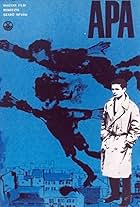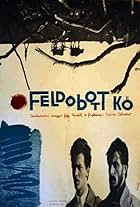A product of the new wave of Hungarian cinema, this debut work by director Judit Elek is an almost enigmatic film.
An elderly woman lives alone, in a two-bedroom apartment in Budapest, full of family memories of an opulent past. But she lives surrounded by neighbors, crowded in decrepit apartments, rented by the room, where old people die, forgotten by everyone, and are buried on the roofs of the buildings (in a funeral scene, totally surreal).
She then goes on an epic adventure, through the city, looking for a smaller apartment, where she can be quiet, comfortable and above all, away from the chaos that surrounds her, from the memories of the past, to the nightmares of the present.
The most famous scene in the film, in which a crowd of people accumulates, visiting the apartment, until chaos ensues, at a party, which lasts for hours, which many compare to Tati, but, for me, it evokes Fellini, for the surrealist absurdity of the situation, the dialogues, the variety of characters that visit the house, the absolute chaos that ensues, to the point that the hostess abandons it, until things finally calm down and she can return, restoring order to the apartment, now almost empty.
It's a film with beautiful moments, but a little hermetic. It could be summarized in the story of an elderly woman, in search of peace, escaping the chaotic urban hustle and bustle of Budapest in the 60s.
Is it enough, as a movie script? Judit Elek seems to believe so.
Is this epic journey an allegory, of the decadence of Hungarian society, at the time, when compared to the luxurious harmony of the old days, before the war?
Perhaps. For me it would give much more sense to the film.
















